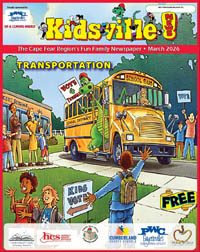The first things many Americans did after members of Congress heldtheir noses and passed a rise in the United States’ debt ceiling was heave asigh of massive relief. The next sound in our nation was a collective snortof disgust. After months of posturing, name-calling, grandstanding withthe eyes of the world upon us which ultimately culminated in a literal fi nalhours compromise that no one likes, the dirty deed was done.
The financial repercussions of this ugly chapter in our history remaincloudy, but what is clear is that, as my father would say, the rich are indeedgetting richer and the poor are getting poorer, relatively speaking.
His is a sentiment we have all heard before, and we may well putmore stock in it during these days of our troubled economy in which newsstories tell us about both bankers and corporate CEOs with bonuses in themillions and other Americans who are struggling to keep their homes outof foreclosure and food on their tables. It just does not seem, to use a wordevery child utters to parents at some point, “fair.”
Fair or not, it appears to be true.
What we are talking about here is wealth, not income. Winning thelottery will skew one’s income for at least a year and perhaps longer, butwealth is a more basic measure than income. It is the value of what youown, your assets, less the value of what you owe, your liabilities. The moreassets and fewer liabilities you have, the higher your wealth. Conversely,fewer assets and more liabilities translate into less wealth, and sometimes,no wealth at all.
There is enough data out there about wealth distribution in the UnitedStates and the rest of the world to send most of us running for the juiciestsummer novel we can find. Truth be told, it is dry reading, and it all goessomething like this. Ten years ago, ten percent of the US populationowned more than 70 percent of the wealth, and the top one percent of thewealthiest folks held almost 40 percent of that wealth. On the other end ofthe spectrum, the bottom 40 percent of people owned only one percent ofthe country’s wealth.
Dry, indeed, unless you are in the bottom heap trying to pull yourselfinto a higher category. Then it becomes personal.
The data gets more concerning as you drill down on it as well. U.S.Census data in the news last month shows that wherever one is on thewealth continuum, racial wealth gaps are as wide as they have been in aquarter of a century. The translation of that is that our shaky economyhas erased many of the economic gains made my minority members of oursociety, leaving white citizens with an average of 20 times the wealth ofAfrican Americans and 18 times that of Hispanics.
None of this is a pretty picture to me.
My family and I are products of free enterprise going back generations,and I am convinced that hard work and entrepreneurship is what hasmade our country what we are. I know, too, that while our position inthe world may be shifting a bit, our economy and our culture remain thegold standard. We know that millions of people around our globe wouldgive their eye teeth to be here with us. Various schemes have been triedsince recorded history by everyone from the Romans to the Communists,and none have been successful over the long haul. Very few Americans,including this one, would support public policies aimed at suchre-distribution.
That being said, I cannot see how growing gaps in wealth can be goodfor our nation.
Minds far brighter than mine have advocated the importance of athriving middle class to our economic health, and that makes sense tome. Our American middle class began emerging during the IndustrialRevolution of the 19th century and came to fruition in the years followingWorld War II when veterans came home, got themselves educated on the GIBill, and built the economy that made us the wealthiest and strongest nationin history. Not to support and nurture our middle class and to allow thewealth gap to grow and divide the haves and the have nots even more canonly be dangerous folly, not just for those individuals and families, but forall Americans.
I fear that what we have just seen during our national ordeal overraising the debt ceiling is but a warm up for the 2012 election rhetoricthat is getting underway. As you think about choosing those who want togovern, ponder for yourself the importance of the American middle classand what we need to do to keep it.
This is one instance in which I hope my Daddy willbe wrong.

 How to resolve AdBlock issue?
How to resolve AdBlock issue? 








